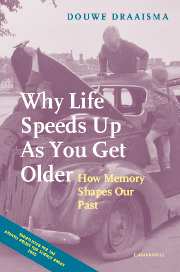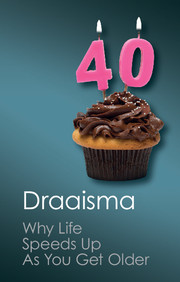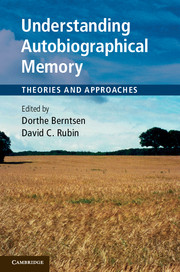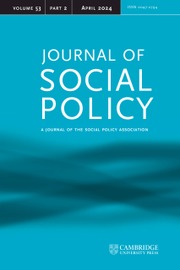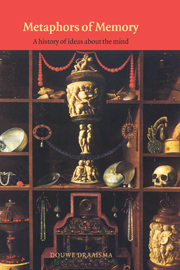Why Life Speeds Up As You Get Older
How Memory Shapes our Past
$90.00 (G)
- Author: Douwe Draaisma, Rijksuniversiteit Groningen, The Netherlands
- Translators:
- Arnold Pomerans
- Erica Pomerans
- Date Published: November 2004
- availability: Available
- format: Hardback
- isbn: 9780521834247
$
90.00
(G)
Hardback
Other available formats:
eBook
Looking for an examination copy?
This title is not currently available for examination. However, if you are interested in the title for your course we can consider offering an examination copy. To register your interest please contact [email protected] providing details of the course you are teaching.
-
Is it true, as the novelist Cees Nooteboom once wrote, that memory is like a dog that lies down where it pleases? Where do the long, lazy summers of our childhood go? Why, as we grow older, does time seem to condense, speed up and elude us, while in old age, significant events from our distant past can seem as vivid and real as what happened yesterday? Douwe Draaisma, author of the internationally acclaimed Metaphors of Memory (Cambridge, 2001), explores the nature of autobiographical memory. Applying a unique blend of scholarship, poetic sensibility, and keen observation, he tackles such extraordinary phenomena as deja-vu, near-death experiences, the memory feats of idiot savants, and the effects of extreme trauma on memory recall. Raising almost as many questions as it answers, this fascinating book will not fail to affect you at the same time as it educates and entertains. Douwe Draaisma is Professor of the History of Psychology in the Department of Theory and History of Psychology at the University of Groningen, The Netherlands. He has published books on time and memory and his articles have appeared in professional journals as diverse as Annals of Science, Psychological Medicine, and Nature. The original Dutch version of Why Life Speeds Up As You Get Older has won several scientific and literary awards.
Read more- Explores the nature of autobiographical memory covering everything from first memories, traumatic memories, extraordinary feats of memory to smell, déjà-vu and flashbulb memories
- Draws on a unique combination of historical scholarship, scientific research and everyday experience
- Written in an accessible, original and engaging style
Reviews & endorsements
"Draaisma...is a terrific writer, whose erudition and passion for the topic are apparent in every page."
--Nature MagazineSee more reviews"This is a provacative and well-written book."
--Desert Morning News"Douwe Draaisma's Why Life Speeds Up As You Get Older won prizes when it appeared in Dutch, and is a treasure. The result is informative, amusing and moving. Long after you close it, it leaves a good memory."
--New Scientist, Jon Turney"...expertly and fluidly integrates applied autobiographical memory topics with interesting historical and contemporary vignettes of the psychology research literature. Excellent supplementary reading for courses in cognitive psychology and the history of psychology, highly recommended."
--CHOICE"Douwe Draaisma has written a delightful book about some intriguing aspects of memory...We applaud Draaisma's identification of hard-to-reach places and hope that this book will challenge experimental psychologists to develop new methodologies."
--PsycCritiques, Elizabeth J. Marsh, Lisa K. Fazio"In this remarkable volume, our hope of understanding the impact of time upon memory is amply met. Douwe Draaisma, an academic psychologist in the Netherlands, has organized a compelling and thorough review of studies in memory. These studies are offered to the reader in understandable terms, thanks to both the author's clarity of presentation and to the skill of the translators, Arnold and Erica Pomerans."
--Philip W. Brickner, MD"...Applying a unique blend of scholarship, poetic sensibility, and keen observation, he tackles such extraordinary phenomena as déjà-vu, near-death experiences, the memory feats of idiot savants, and the effects of extreme trauma on memory recall. Raising almost as many questions as it answers, this fascinating book will not fail to affect you at the same time as it educates and entertains."
--Human EvolutionCustomer reviews
Not yet reviewed
Be the first to review
Review was not posted due to profanity
×Product details
- Date Published: November 2004
- format: Hardback
- isbn: 9780521834247
- length: 288 pages
- dimensions: 237 x 160 x 28 mm
- weight: 0.61kg
- contains: 25 b/w illus.
- availability: Available
Table of Contents
1. 'Memory is like a dog that lies down where it pleases'
2. Flashes in the dark: first memories
3. Smell and memory
4. Yesterday's record
5. The inner flashbulb
6. 'Why do we remember forwards and not backwards?' 7. The absolute memories of Funes and Sherashevsky
8. The advantages of a defect: the savant syndrome
9. The memory of a grandmaster: a conversation with Ton Sijbrands
10. Trauma and memory: the Demjanjuk case
11. Richard and Anna Wagner: forty-five years of married life
12. 'In oval mirrors we drive around': on experiencing a sense of déjà vu
13. Reminiscences
14. Why life speeds up as you get older
15. Forgetting
16. 'I saw my life flash before me'
17. From memory - Portrait with Still Life.
Sorry, this resource is locked
Please register or sign in to request access. If you are having problems accessing these resources please email [email protected]
Register Sign in» Proceed
You are now leaving the Cambridge University Press website. Your eBook purchase and download will be completed by our partner www.ebooks.com. Please see the permission section of the www.ebooks.com catalogue page for details of the print & copy limits on our eBooks.
Continue ×Are you sure you want to delete your account?
This cannot be undone.
Thank you for your feedback which will help us improve our service.
If you requested a response, we will make sure to get back to you shortly.
×
